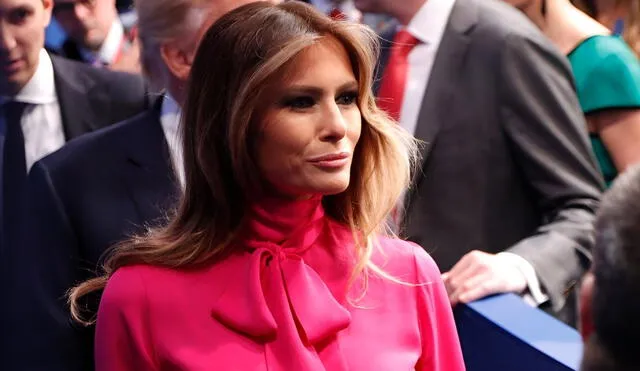Melania Trump-backed revenge porn bill passes House, heads to President’s desk
As deepfake technology fuels a new wave of online abuse, the 'Take It Down Act' emerges as a groundbreaking effort to safeguard digital privacy and set a nationwide standard for internet safety.

The "Take It Down Act" passed the House of Representatives in a sweeping 409–2 vote after previously clearing the Senate unanimously. The bill makes it a federal crime to distribute non-consensual intimate images, including AI-generated “deepfakes.” It also requires online platforms to remove such content within 48 hours of a victim’s request.
First Lady Melania Trump has been a leading advocate for the bill, aligning it with her “Be Best” initiative focused on youth well-being. Speaking at the Capitol, she called the growing prevalence of such harmful content “heartbreaking,” particularly for teenage girls who are often the victims of this abuse.

ALSO SEE: Canada's Prime Minister Mark Carney declares victory amid US threats: "We will never yield to Trump"
Bipartisan revenge porn Bill gains tech industry support, sets Federal penalties for non-consensual content
The legislation was co-sponsored by Senators Ted Cruz and Amy Klobuchar, showcasing rare bipartisan unity. Major tech companies like Meta, Google, and Snap supported the bill, along with civil rights groups. Critics, however, raised concerns about possible overreach and implications for free speech.
The bill includes penalties of up to two years in prison for distributing non-consensual intimate content, and up to three years if the victim is a minor. It also allows for federal prosecution, addressing inconsistencies across state laws and filling existing legal gaps.
Take it down act poised to become Landmark internet law amid rising deepfake threats
Legal experts suggest the law is likely to survive constitutional scrutiny under the First Amendment. Many see it as a milestone in online safety regulation, especially in an age where deepfake technology continues to evolve rapidly.
If signed, the "Take It Down Act" would become the first major internet-focused law of President Trump’s second term setting a national standard for combating digital abuse and protecting personal privacy in the digital age.
Expert warns deepfake legislation faces challenges in tackling online harm and technological solutions
Anton Dahbura, the executive director of the Johns Hopkins University Information Security Institute, acknowledged the value of a proposed bill aimed at addressing the harmful effects of deepfake technology. However, he warned that its implementation could be complex. While 48 hours may seem like a long time for a photo to circulate online from the perspective of a victim, it is a short period for large social media companies that have to manage potentially thousands of similar takedown requests simultaneously.
Dahbura also highlighted the broad potential dangers of deepfakes, stating that they don’t have to be sexual or pornographic to be damaging. They can place someone in a situation they were never in, make them say things they never said, or associate them with people they were never with. He pointed out that while the proposed law addresses part of the issue, it doesn’t solve the entire problem. According to Dahbura, both the tech industry and the government are not yet fully equipped to protect individuals from this type of activity, and counteracting the technology will require technological solutions rather than relying on humans alone.












